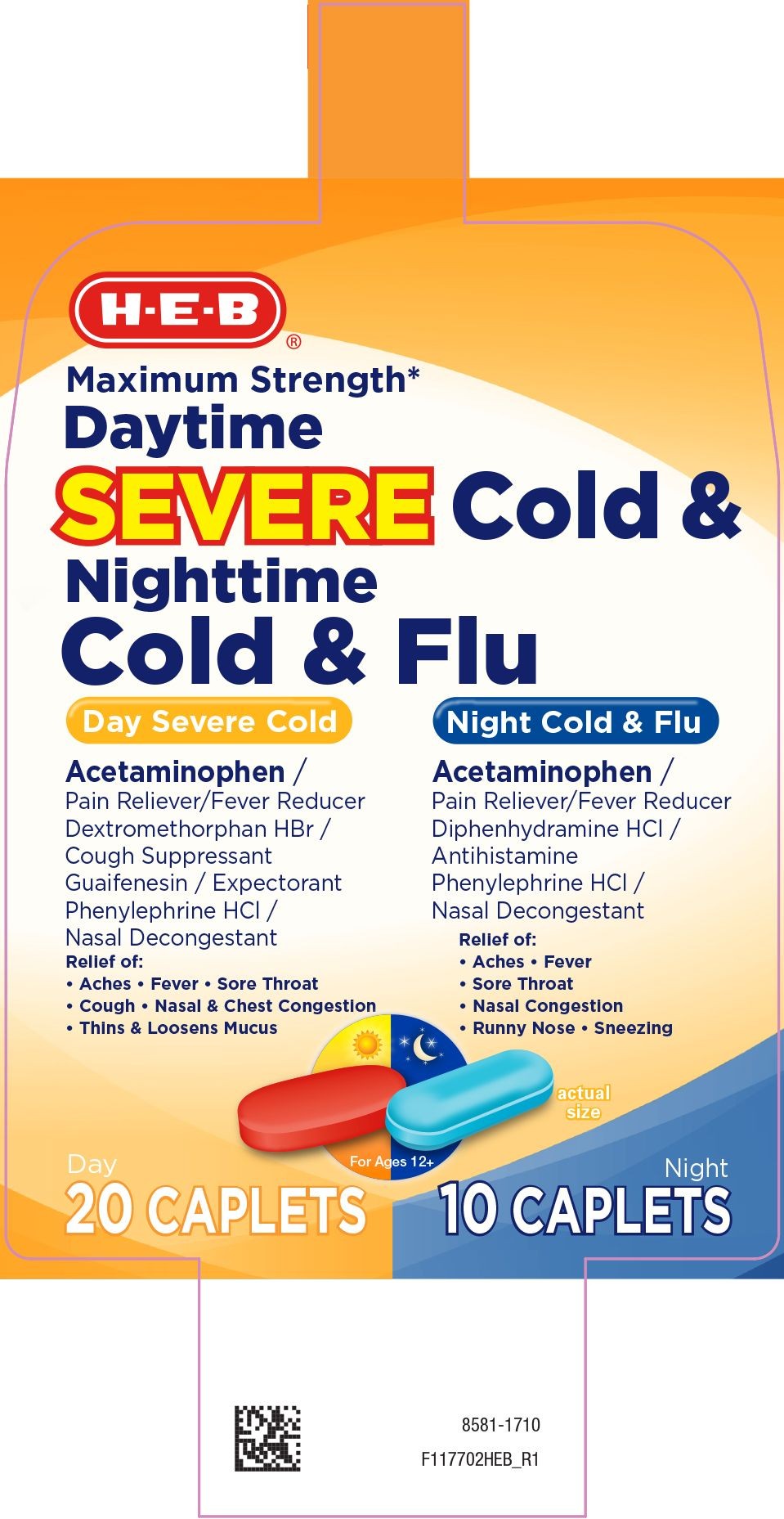
Contents
Acetaminophen/diphenhydramine/dextromethorphan
Acetaminophen/diphenhydramine/dextromethorphan is a combination medication used for the temporary relief of common cold and flu symptoms, including fever, headache, muscular aches, cough, sore throat, runny nose, and sneezing. The three drugs are combined in specific dosages and the combination drug is available over the counter (OTC).
Each medication in the combination works differently and together they provide more effective relief than any single agent.
- Acetaminophen is an analgesic and antipyretic drug used to relieve pain and fever. It acts on the central nervous system (CNS) to block pain impulse generation and inhibit the synthesis of prostaglandin, a natural substance that causes inflammation. Acetaminophen also reduces fever by acting on the hypothalamus region of the brain.
- Diphenhydramine blocks histamine from binding to histamine H1 receptors, which helps reduce inflammation. Diphenhydramine can also induce sedation.
- Dextromethorphan suppresses cough by reducing the sensitivity of cough receptors in the brain.
Warnings
- Do not use acetaminophen/diphenhydramine/dextromethorphan if you are hypersensitive to any of the components in the formulation.
- Avoid concurrent use with other drugs containing acetaminophen or diphenhydramine, including topical formulations.
- Acetaminophen can cause liver damage, especially with prolonged high dosages. Risk is higher with concurrent use of other acetaminophen products and in alcoholics.
- Avoid use of acetaminophen/diphenhydramine/dextromethorphan in certain conditions, including hepatitis or liver dysfunction, kidney dysfunction, alcoholism, liver disease, increased intraocular pressure or glaucoma, respiratory conditions, prostate enlargement, bladder neck obstruction, stenosing peptic ulcer, and pyloroduodenal obstruction.
Side Effects
Common side effects include drowsiness, dizziness, sedation, blurred vision, uncontrolled eye movements (nystagmus), constipation, nausea, vomiting, and thick sputum.
Less common side effects include confusion, disorientation, decreased cognitive function in elderly patients, dry mouth, dryness of nasal mucous membrane, dryness of throat, gastrointestinal hemorrhage, liver toxicity, liver failure, kidney toxicity, lung inflammation, allergic skin reactions, hypersensitivity reactions, and blood disorders.
Contact your doctor immediately if you experience serious symptoms or side effects:
- Serious heart symptoms
- Severe headache, confusion, slurred speech, severe weakness, vomiting, loss of coordination, feeling unsteady
- Severe nervous system reaction with very stiff muscles, high fever, sweating, confusion, fast or uneven heartbeats, tremors, feeling like you might pass out
- Serious eye symptoms
This is not a complete list of all side effects or adverse reactions. Contact your doctor for medical advice or report side effects or health problems to the FDA at 1-800-FDA-1088.
Dosages
Oral Solution:
- 325 mg/12.5 mg/10 mg/5 mL
Cold and Flu:
- Adults: 10 mL orally every 4 hours as needed; not to exceed 6 doses/24 hours
- Pediatric: Children below 6 years: Safety and efficacy not established; Children 6-12 years: 5 mL orally every 4 hours as needed; not to exceed 6 doses/24 hours; Children above 12 years: Same as adult dosage
Overdose:
- Overdose of acetaminophen/diphenhydramine/dextromethorphan can damage the liver and cause severe adverse effects such as nausea, vomiting, loss of appetite, sweating, abdominal pain, extreme tiredness, yellowing eyes and skin, dark urine, agitation, confusion, hallucinations, and seizures.
- In children, an overdose may cause excitement, followed by drowsiness, loss of coordination, loss of consciousness, and seizures.
- Overdose treatment may include administration of N-acetylcysteine, an antidote to acetaminophen, along with other symptomatic and supportive measures as needed.
Drug Interactions
Inform your doctor of all medications you are currently taking to check for possible drug interactions. Do not start, discontinue, or change the dosage of any medication without your doctor’s recommendation.
Severe interactions include eliglustat, calcium/magnesium/potassium/sodium oxybates, eluxadoline, isocarboxazid, lonafarnib, mefloquine, metoclopramide intranasal, olopatadine intranasal, pexidartinib, pitolisant, pramlintide, pretomanid, and quinidine.
Remember to always tell your doctor, pharmacist, or healthcare provider about all prescription and over-the-counter medications you use.
Pregnancy and Breastfeeding
- Acetaminophen/diphenhydramine/dextromethorphan should be used by pregnant women only if clearly needed.
- Do not use this combination if you are a nursing mother.
- Consult with your healthcare provider before taking any OTC drug, including acetaminophen/diphenhydramine/dextromethorphan, if you are pregnant or breastfeeding.
General Information
- Take acetaminophen/diphenhydramine/dextromethorphan as prescribed and do not exceed recommended dosages or take for prolonged periods.
- Avoid overdose by checking product labels carefully as acetaminophen is found in many combination products.
- Discontinue use if you develop hypersensitivity reactions or if symptoms persist or worsen.
- Consult your healthcare provider if your sore throat or cough lasts longer than recommended, if your fever gets worse or lasts longer than advised, or if you develop new symptoms or severe skin reactions.
Sources:
Cold and Flu Resources
- What Your Mucus Says About Your Health
- Cold and Flu Symptoms Across the U.S.
- An Inside Look at How Germs Spread
Featured Centers
- What Are the Best PsA Treatments for You?
- Understanding Biologics
- 10 Things People With Depression Wish You Knew
Summary
Acetaminophen/diphenhydramine/dextromethorphan is a combination medication used for the temporary relief of common cold and flu symptoms, including fever, headache, muscular aches, cough, sore throat, runny nose, and sneezing. Common side effects include drowsiness, dizziness, sedation, blurred vision, uncontrolled eye movements, constipation, nausea, vomiting, and thick sputum. Consult with your doctor if pregnant or breastfeeding.


